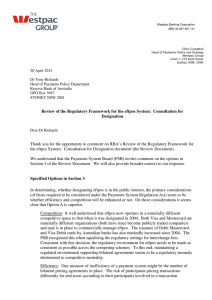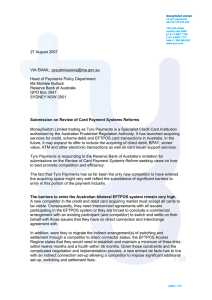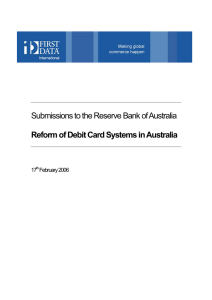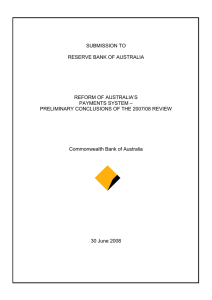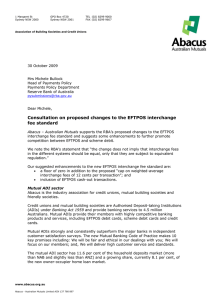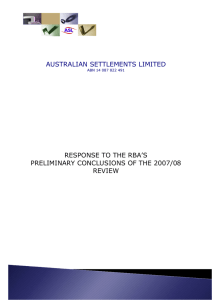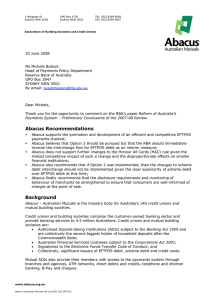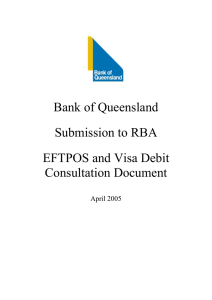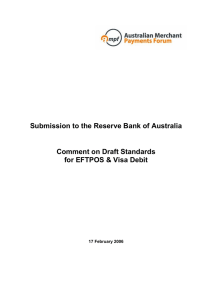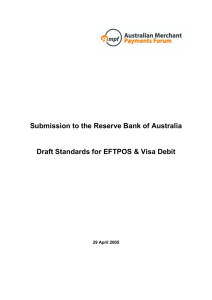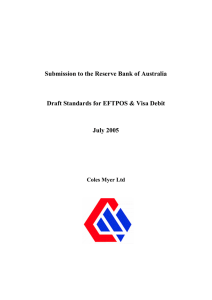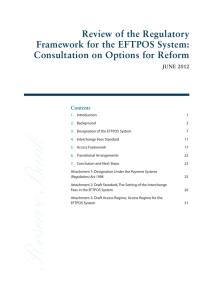MWE CONSULTING PTY LTD
advertisement
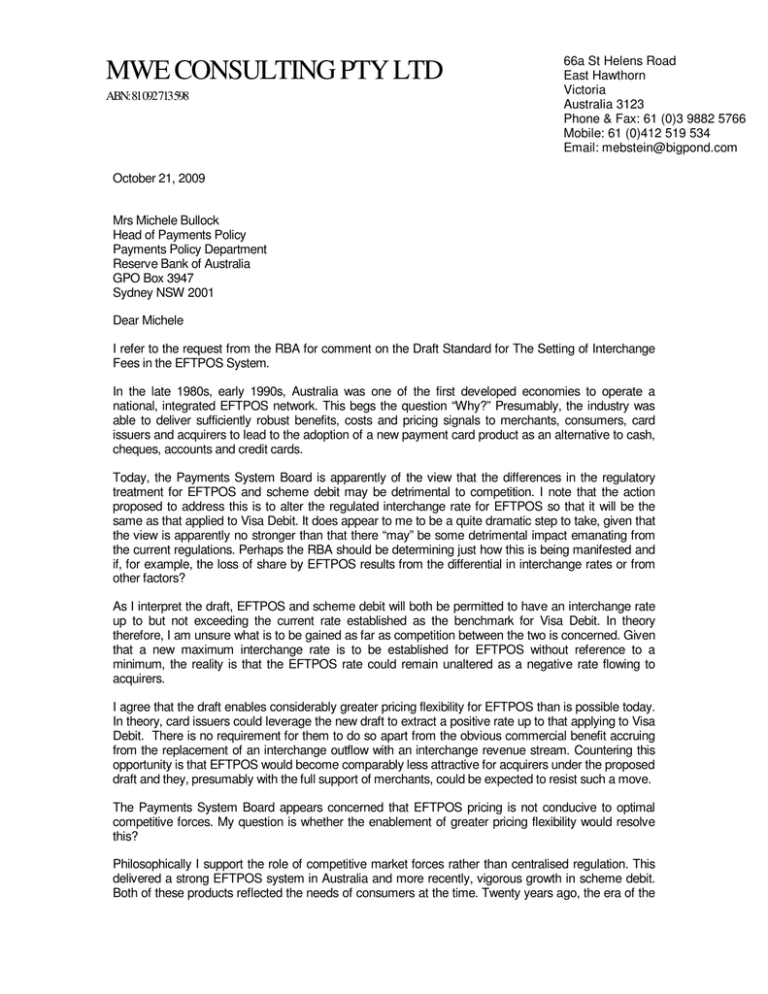
MWE CONSULTING PTY LTD ABN: 81092713598 66a St Helens Road East Hawthorn Victoria Australia 3123 Phone & Fax: 61 (0)3 9882 5766 Mobile: 61 (0)412 519 534 Email: mebstein@bigpond.com October 21, 2009 Mrs Michele Bullock Head of Payments Policy Payments Policy Department Reserve Bank of Australia GPO Box 3947 Sydney NSW 2001 Dear Michele I refer to the request from the RBA for comment on the Draft Standard for The Setting of Interchange Fees in the EFTPOS System. In the late 1980s, early 1990s, Australia was one of the first developed economies to operate a national, integrated EFTPOS network. This begs the question “Why?” Presumably, the industry was able to deliver sufficiently robust benefits, costs and pricing signals to merchants, consumers, card issuers and acquirers to lead to the adoption of a new payment card product as an alternative to cash, cheques, accounts and credit cards. Today, the Payments System Board is apparently of the view that the differences in the regulatory treatment for EFTPOS and scheme debit may be detrimental to competition. I note that the action proposed to address this is to alter the regulated interchange rate for EFTPOS so that it will be the same as that applied to Visa Debit. It does appear to me to be a quite dramatic step to take, given that the view is apparently no stronger than that there “may” be some detrimental impact emanating from the current regulations. Perhaps the RBA should be determining just how this is being manifested and if, for example, the loss of share by EFTPOS results from the differential in interchange rates or from other factors? As I interpret the draft, EFTPOS and scheme debit will both be permitted to have an interchange rate up to but not exceeding the current rate established as the benchmark for Visa Debit. In theory therefore, I am unsure what is to be gained as far as competition between the two is concerned. Given that a new maximum interchange rate is to be established for EFTPOS without reference to a minimum, the reality is that the EFTPOS rate could remain unaltered as a negative rate flowing to acquirers. I agree that the draft enables considerably greater pricing flexibility for EFTPOS than is possible today. In theory, card issuers could leverage the new draft to extract a positive rate up to that applying to Visa Debit. There is no requirement for them to do so apart from the obvious commercial benefit accruing from the replacement of an interchange outflow with an interchange revenue stream. Countering this opportunity is that EFTPOS would become comparably less attractive for acquirers under the proposed draft and they, presumably with the full support of merchants, could be expected to resist such a move. The Payments System Board appears concerned that EFTPOS pricing is not conducive to optimal competitive forces. My question is whether the enablement of greater pricing flexibility would resolve this? Philosophically I support the role of competitive market forces rather than centralised regulation. This delivered a strong EFTPOS system in Australia and more recently, vigorous growth in scheme debit. Both of these products reflected the needs of consumers at the time. Twenty years ago, the era of the Page 2 October 21, 2009 cashless society was being pondered with the newfound ability for consumers to access their cash at ATMs and POS. With familiarity came uptake and it has developed into a current $285 billion annual turnover figure. But today, younger consumers in particular demand the additional convenience of online payment capability as well as the ability to use their own funds internationally. These facilities, together with their desire for control and fiscal discipline in a volatile and uncertain economic world have contributed to a strong growth in scheme debit. Going forward, I would caution against the adoption of an approach which, as appears to be the case, standardises the regulations of both EFTPOS and scheme debit on the basis of disparate growth. I welcome and support the additional flexibility of the Draft Standard for EFTPOS and note that this is intended to be a transitional approach. I would urge that the RBA applies a logic based approach to any further review of debit interchange rates, being cognisant of the fact that there are considerable differences between the two products. In summary my position is that a) the RBA should establish whether in fact the present interchange regulations are detrimental and if so, resulting in adverse impacts to which product(s) and/or to which common interest group(s); b) the move away from strictly prescribed rates by enabling greater price setting flexibility is commendable; and c) future debit interchange rates should not be adopted to achieve standardisation but based on product attributes, costs and features. Yours sincerely Michael Ebstein
